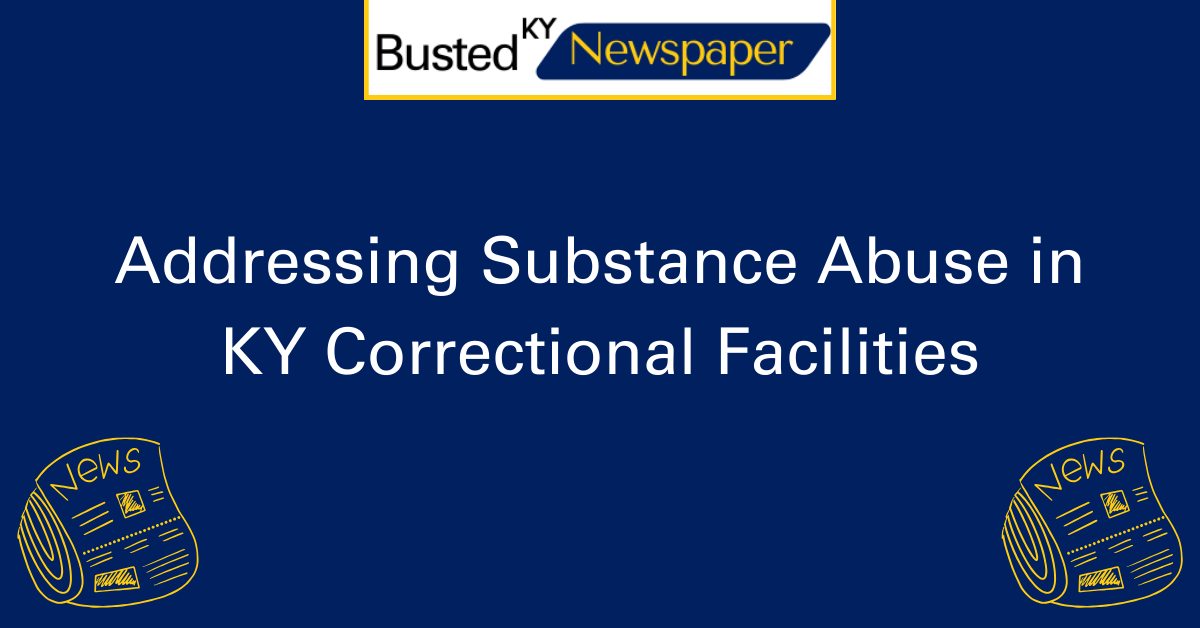Addressing Substance Abuse in KY Correctional Facilities
Substance abuse is a pressing issue that affects individuals and communities across the United States. Within the correctional system, it poses a unique set of challenges that demand immediate attention. Kentucky, like many other states, is grappling with the detrimental effects of substance abuse within its correctional facilities.
In response to this growing concern, the state of Kentucky has taken proactive measures to address substance abuse in its correctional facilities. Recognizing the need for a comprehensive approach, the state has implemented evidence-based programs and interventions aimed at rehabilitation and reducing recidivism rates. By focusing on substance abuse treatment and support services, Kentucky aims to break the cycle of addiction and provide inmates with the necessary tools for successful reintegration into society.
Substance Abuse Treatment in Prisons
Addressing substance abuse within correctional facilities is essential for the rehabilitation and successful reintegration of inmates. Research has consistently shown that substance abuse treatment significantly reduces recidivism rates, improves overall well-being, and promotes a healthier and safer environment for both inmates and staff.
Evidence-Based Programs for Effective Rehabilitation
Kentucky’s proactive measures include the implementation of evidence-based programs and interventions aimed at addressing substance abuse. These programs are backed by extensive research and have demonstrated positive outcomes in reducing substance use, criminal behavior, and the risk of relapse.
Comprehensive Approach for Long-Term Success
A comprehensive approach is necessary to effectively combat substance abuse within correctional facilities. Kentucky recognizes this need and has developed a multifaceted strategy that includes not only treatment programs but also support services such as counseling, vocational training, and aftercare planning.
Breaking the Cycle of Addiction
By focusing on substance abuse treatment, Kentucky aims to break the cycle of addiction that often leads to repeated offenses. Through evidence-based interventions, inmates can gain the necessary skills and knowledge to overcome their addiction, manage triggers and cravings, and develop alternative coping mechanisms.
Empowering Inmates for Successful Reintegration
Reintegration into society after incarceration can be challenging, especially for individuals struggling with substance abuse. Kentucky’s approach emphasizes providing inmates with the tools and support they need to successfully reintegrate into their communities. By addressing the underlying causes of addiction and equipping inmates with the necessary skills, Kentucky aims to reduce the likelihood of relapse and promote a successful transition.
Collaboration and Partnerships for Lasting Impact
Kentucky recognizes that addressing substance abuse in correctional facilities requires collaboration and partnerships with various stakeholders. This includes cooperation between correctional staff, healthcare providers, community organizations, and treatment professionals. By working together, these partnerships can ensure a continuum of care that extends beyond the confines of the correctional facility and into the communities inmates will return to.
FAQ’s
Substance abuse in correctional facilities has far-reaching consequences, impacting inmate behavior, mental health, and the overall rehabilitation process. It leads to increased violence, and strained staff-inmate relations, and perpetuates criminal behavior, hindering the core goals of corrections.
Kentucky is actively combatting substance abuse in its correctional system through a comprehensive approach. The state employs preventive measures, like educational programs, intervenes early with counseling and treatment, and focuses on rehabilitation to break the cycle of addiction within its prison population.
Kentucky’s strategy to address inmate addiction cycles involves a proactive stance. The state emphasizes early intervention through identification and support mechanisms. By offering counseling, treatment programs, and equipping inmates with coping skills, Kentucky aims to disrupt the cycle of addiction, facilitating a more effective rehabilitation process.
Kentucky’s goals regarding prison substance abuse revolve around creating a safer and more rehabilitative environment. The state seeks to reduce violence, improve mental health outcomes for inmates, and break the cycle of addiction. Through educational initiatives, counseling, and targeted intervention, Kentucky aims to achieve lasting positive change within its correctional facilities.







